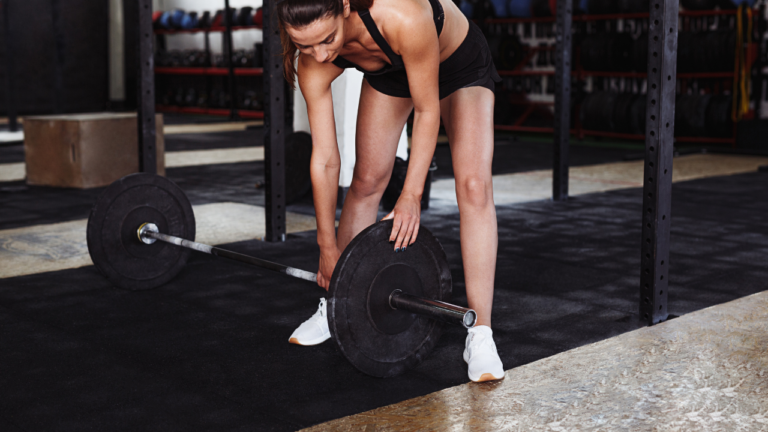10 Tips for Managing Perimenopause Fatigue as a Female Athlete

Perimenopause, the transitional period before menopause, typically begins in a woman’s 40s but can start earlier for some.
During this time, hormonal fluctuations, particularly the decline in estrogen and progesterone, can bring about a range of symptoms, with fatigue being one of the most common. For female athletes, managing this fatigue while maintaining athletic performance can be challenging, but with the right approach, it’s possible to stay energized and resilient throughout this phase of life.
Here are 10 tips to help female athletes manage perimenopausal fatigue effectively.
1. Prioritize Sleep and Recovery
One of the most important factors in combating fatigue during perimenopause is improving sleep quality. Hormonal changes often disrupt sleep, leading to poor rest and increased daytime fatigue. Creating a consistent sleep routine, reducing screen time before bed, and optimizing your sleep environment can improve the quality of your rest. For athletes, sleep is essential for muscle recovery, so addressing sleep issues should be a top priority.
- Try natural sleep aids like magnesium supplements or herbal teas (chamomile or valerian root) to improve relaxation before bed.
- Consider melatonin supplements if falling asleep becomes a challenge, but consult with your healthcare provider first.
2. Adjust Your Training Load
During perimenopause, you may need to modify your training intensity and duration based on your energy levels. Overtraining can exacerbate fatigue, while strategic rest days can improve recovery and energy. Pay close attention to your body’s cues and be flexible with your training schedule.
- Incorporate lower-intensity workouts on days when fatigue is high. Activities like yoga, swimming, or walking can still promote fitness without overwhelming your energy reserves.
- Alternate between high-intensity and low-intensity days to give your body adequate recovery.
3. Focus on Nutrition for Hormone Balance
Nutrition plays a critical role in managing fatigue, especially during perimenopause. Eating a balanced diet that supports hormonal health and energy production can make a big difference. Focus on whole, nutrient-dense foods that provide steady energy throughout the day.
- Eat protein with every meal to maintain muscle mass and support recovery. Good options include lean meats, fish, eggs, beans, and plant-based proteins.
- Include complex carbohydrates (like whole grains, fruits, and vegetables) to provide sustained energy and prevent blood sugar dips that can exacerbate fatigue.
- Ensure you’re getting enough healthy fats, particularly omega-3 fatty acids from sources like fish, chia seeds, and walnuts. Omega-3s are known to support hormone regulation and reduce inflammation.
4. Stay Hydrated
Dehydration can worsen fatigue, especially for athletes who are physically active. During perimenopause, your body’s ability to regulate temperature can also shift, making it easier to become dehydrated during exercise.
- Drink water consistently throughout the day, and consider adding electrolytes to your post-workout hydration to replace any minerals lost through sweat.
- Herbal teas, like red clover or licorice root, can also support hormone balance and reduce symptoms of fatigue.
5. Manage Stress with Mindfulness and Relaxation Techniques
Perimenopause can bring emotional fluctuations, and stress is a significant contributor to fatigue. Incorporating stress-reduction practices like mindfulness, meditation, or deep-breathing exercises can help manage stress and improve overall energy.
- Consider adding yoga or Pilates to your training regimen. These forms of exercise not only improve flexibility and strength but also promote relaxation and reduce stress hormones like cortisol.
- Mindfulness meditation for 10-15 minutes a day can help center your mind, reducing stress and its drain on your energy levels.
6. Consider Supplementation
Fatigue in perimenopause may be linked to deficiencies in certain vitamins and minerals. Common deficiencies during this stage include iron, magnesium, vitamin D, and B vitamins, all of which are important for energy metabolism.
- If you feel persistently fatigued, consider asking your doctor to test for iron deficiency. Athletes, especially female athletes, are at higher risk for low iron levels, which can lead to fatigue and decreased performance.
- B-complex vitamins are crucial for energy production, so ensuring you’re getting enough can support sustained energy levels throughout the day.
7. Incorporate Strength Training
Strength training becomes even more important during perimenopause as muscle mass naturally declines with age. Maintaining or building muscle through resistance training can help combat fatigue by boosting your metabolism and energy levels.
- Programs like our 8-week Strict Pull-Up Program or 6-week lat, grip, and core program can be highly beneficial in preserving muscle strength and boosting energy during perimenopause.
- Focus on compound movements like squats, deadlifts, and rows that work multiple muscle groups, as these exercises provide a bigger return on energy investment.
8. Support Hormone Health with Phytoestrogens
Phytoestrogens are plant-based compounds that mimic the effects of estrogen in the body, and incorporating foods that contain phytoestrogens may help mitigate some of the hormonal imbalances associated with perimenopause. By doing so, you can reduce some of the fatigue and other symptoms linked to declining estrogen levels.
- Soy products (like tofu, tempeh, and edamame) are rich in phytoestrogens and can support hormonal balance.
- Other sources include flaxseeds, sesame seeds, and legumes.
9. Listen to Your Body
During perimenopause, your body’s needs may change frequently. There will be days when you feel energetic and ready to train hard, and others when fatigue makes intense workouts feel impossible. The key is learning to listen to your body and adjusting your exercise, diet, and lifestyle accordingly.
- It’s okay to take rest days or lighten your workout when needed. Recovery is as important as training during this phase of life.
10. Seek Professional Guidance
If perimenopausal fatigue becomes overwhelming or significantly impacts your athletic performance, it’s essential to seek guidance from healthcare professionals. Hormonal therapy, nutritional advice, or other medical interventions may be helpful in managing symptoms.
- Consider consulting with a nutritionist or functional medicine specialist who can help tailor a plan to support your hormone health and energy levels.
- A doctor may recommend hormone replacement therapy (HRT) or other treatments to help balance estrogen and progesterone levels, which could alleviate fatigue and other perimenopausal symptoms.
Perimenopause brings unique challenges for female athletes, with fatigue being one of the most common hurdles. By prioritizing sleep, adjusting training intensity, focusing on nutrition, and managing stress, you can maintain your energy levels and continue to perform at your best.
Understanding your body’s changing needs and being flexible with your approach will allow you to stay strong, resilient, and active throughout this transitional phase.
Need more help with this? We are HERE for you! Check out our 9 Week Perimeno Strength + Nutrition Program, our Level M program for CrossFit, our Lifting program, and our Nutrition Coaching options!
And don’t forget to follow us on Instagram for all things fitness and nutrition!








